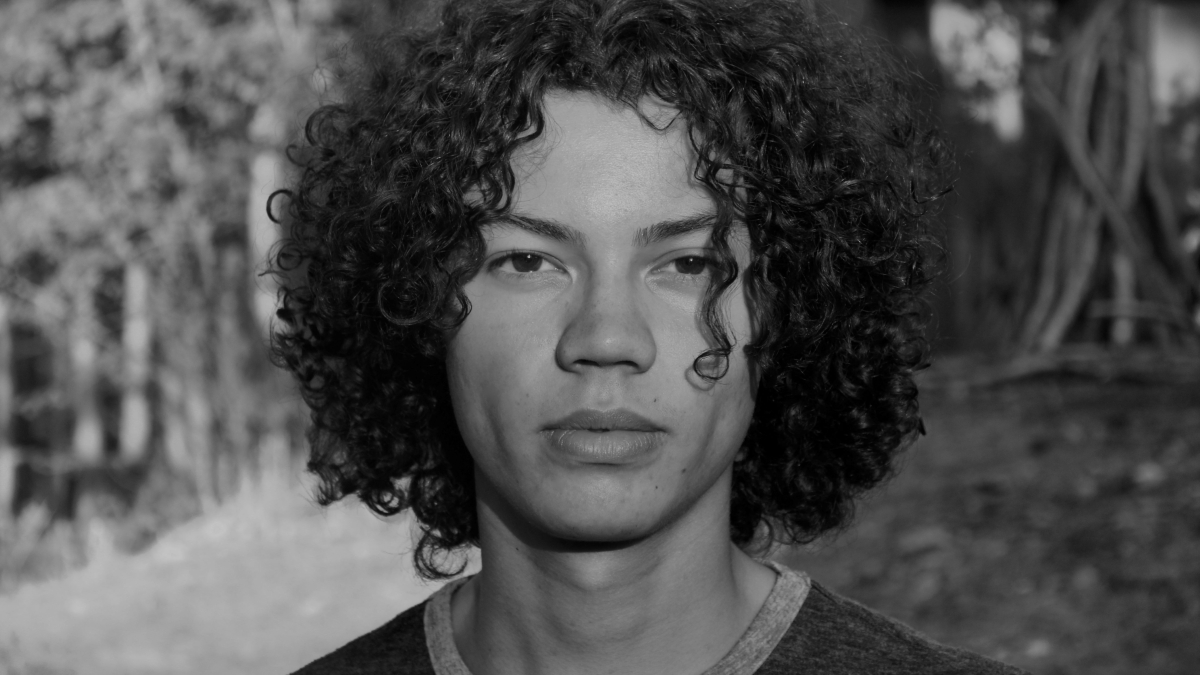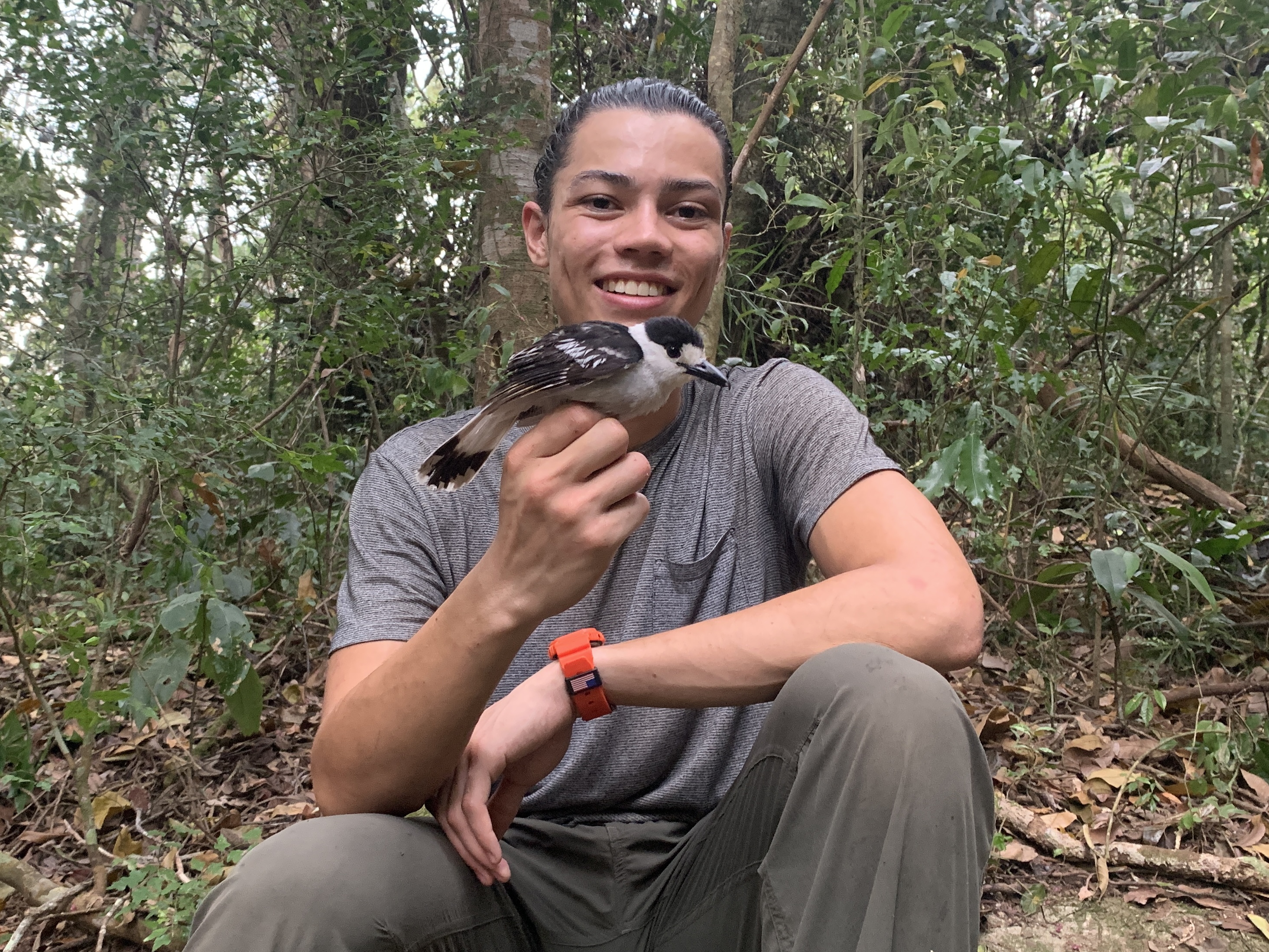ASU alum to enter Oxford for graduate studies this fall

Tahiry Langrand
Tahiry Langrand created steppingstones while an undergraduate at Arizona State University that led him through rigorous studies and prestigious scholarships — and now, this fall, they will lead him to graduate school at the University of Oxford in England.
Langrand, who is originally from Madagascar and France, grew up in Reston, Virginia, a suburb of Washington, D.C. He graduated ASU in May 2022 with a Bachelor of Science in sustainability, a minor in Spanish language studies and a certificate in biomimicry, with honors from Barrett, The Honors College.
After graduation from ASU, Langrand embarked on a gap year in Madagascar, where he did fieldwork documenting bats and small mammals in Ranomafana National Park, located in the eastern part of the country, off the southeastern coast of Africa.
Also, working with research colleagues, he completed and sent for review the bird chapter manuscript for a monograph that will be published on a biological inventory he participated in at Marojejy National Park in northeastern Madagascar in 2020. He will be the second author on this manuscript, his first professional publication. The Marojejy project was the subject of Langrand’s honors thesis.
Langrand said he chose ASU for its status as a Research-1 university, the College of Global Futures' School of Sustainability, the honors college and scholarship funding.
“ASU being an R1 university and hosting the first School of Sustainability in the nation meant it was well established in sustainability research. Additionally, I was impressed that ASU placed importance on its sustainability research efforts and presented it at the forefront of a college fair stand,” he said.
“I also appreciated ASU’s philosophical approach to diversity and inclusion. And Barrett and the School of Sustainability offered me the small-school advantages of having easy access to one-on-one mentorship from professors and advisors. Barrett’s extra classes and honors thesis also appealed to me. I felt I could use the extra push to stand out academically and to take full advantage of being exposed to topics outside of my degree programs,” he added.
Langrand also received a scholarship that matched the in-state tuition of his home state of Virginia, making it more affordable to attend ASU.
Another great resource Langrand found at ASU was the Lorraine Frank Office of National Scholarships Advisement. ONSA, part of Barrett, The Honors College, helps ASU students and alumni compete for prestigious national and international scholarships and fellowships that fund research, international study, professional development or post-baccalaureate study.
Langrand first heard about ONSA from a Barrett student e-newsletter early on during his first year and was immediately interested.
“I realized that in college I had plenty of free time and that I could dedicate a portion of it advancing myself beyond my classes. I found that there was only a relatively small group of students taking advantage of national scholarships, and most of these awards were specialized based on field, which made them almost too good to be true. They provided financial support and were prestigious, but sometimes not as competitive as one might think. Also, there was a whole team of seasoned professionals that wanted to help me strategize and improve my writing at ONSA,” he said.
Langrand attended ONSA workshops and planned out which scholarships he would apply to each year.
“I used them (scholarship applications) as steppingstones to build my profile for the next one with the goal of putting my best foot forward as a competitive grad school applicant. ONSA helped me build my confidence to send out applications to some of the most prestigious national and international scholarships, provided my goals with structure and helped strengthen the way I presented myself,” he said.
“I quickly realized that after writing an essay for one scholarship, the essay for the next was much easier. I continuously updated my story for four years, becoming more articulate with each application and effective with my time (spent on each application).”

After graduating from ASU, Tahiry Langrand worked with research colleagues to complete and send for review the bird chapter manuscript for a monograph that will be published on a biological inventory he participated in at Marojejy National Park in northeastern Madagascar in 2020. He will be the second author on this manuscript, his first professional publication. The Marojejy project was the subject of Langrand’s honors thesis.
Langrand’s strategy and work with ONSA paid off.
He was a Doris Duke Conservation Scholar at University of California Santa Cruz his sophomore year, from June 2020 to August 2021. In spring 2020, he was was awarded the Udall Undergraduate Scholarship for leadership, public service and commitment to environmental issues. In total, he was awarded around $16,000 in scholarships and fellowships he applied to with assistance from ONSA.
In his junior year, he was a finalist for the Truman Scholarship, and in his senior year he was a semifinalist for the Fulbright U.S. Student Program Award. He also applied to the Rhodes Scholarship and the Marshall Scholarship.
“Although I did not ultimately become a scholar for these, my essays highly influenced my general application to the University of Oxford,” said Langrand, who will begin an Master of Science in biodiversity, conservation and management at the University of Oxford's School of Geography and the Environment this fall.
Kyle Mox, associate dean of ONSA, said Langrand is an example of “the kind of work required to craft a competitive application for major fellowships that pay many dividends, many of which are not immediately realized by applicants.”
“To be competitive for major fellowships like the Udall, Marshall or Rhodes, applicants must articulate a clear, compelling vision for their own future and how their work will benefit the world. What work do I find meaningful? What is my place in society? How can I be of value to my community? What are the problems that I want to solve? How can I become the change that I want to see in the world? These are difficult questions, and opportunities to sit down and really think through answers to them are rare. Most of the work that we do in ONSA is centered on these questions,” he said.
“Obviously, people like Tahiry who have clear answers to these questions make excellent applicants for graduate or professional school. Leaders are people who have a clear sense of purpose and direction.”
Langrand reflected on the advice he would give to students and alumni who may be interested in pursuing national and international scholarships, fellowships and graduate school.
“Do it! There is nothing to lose,” he said.
“The applications may seem daunting at first, but it is easier than it seems to talk about what drives you. Even if you do not win the scholarship, going through the process will clarify your ideas and interests, and you will likely reference the materials for future uses. If you win, you will benefit from financial support, an expanded national/international network, and a major resume boost that will authenticate your interests to others and ease your ability to positively influence the world,” he said.
“Lean onto your support system. You will not always know better, nor know everything. Surround yourself with people who want to see you succeed. Ask questions to previous applicants; seek help from mentors when you need it.”
Most importantly, he said, “overcome imposter syndrome. We all feel it. You are just as valid and valuable a candidate as the next person. Everybody has a different path and story to tell; stick to your guns with confidence.”
And finally, “trust the process. There will be lows just like there will be highs. Very few people will remember the lows once they’re past them.”
More Environment and sustainability

From environmental storytelling to hydroponics, student cohort crafts solutions for a better future
A select group of students from Arizona State University's College of Global Futures, a unit within the Julie Ann…

2 ASU faculty elected as AAAS Fellows
Two outstanding Arizona State University faculty spanning the physical sciences, psychological sciences and science policy have…

Homes for songbirds: Protecting Lucy’s warblers in the urban desert
Each spring, tiny Lucy’s warblers, with their soft gray plumage and rusty crown, return to the Arizona desert, flitting through…

